The role of MSME in Indian economy is of utmost importance. MSMEs, which stands for Micro, Small, and Medium Enterprises, play a significant role in driving economic growth, generating employment opportunities, and fostering innovation.
These enterprises contribute to the overall development of the country by promoting entrepreneurship, supporting rural development, and bridging the urban-rural divide.
MSMEs also contribute to the GDP of India and help in reducing poverty by providing livelihood opportunities to a large number of people. They are the backbone of the Indian economy, and their growth and success are crucial for the nation’s economic prosperity.
MSMEs have an important role in the industrial development of less-developed countries like India. The Indian economy heavily relies on the MSME sector, which plays a significant role in its overall functioning.
MSMEs account for 95% of the industrial units in India, contribute to 40% of the output in the manufacturing sector, and use over 18 million people. According to the 4th All India Census of Micro, small, and medium enterprises (MSMEs), approximately 594.
61 lakh individuals are working in the MSME sector, which includes agro, rural, cottage, and small-scale industries. Most importantly, this sector accounts for 35% of India’s exports. It has been estimated that they contribute about 50% of total industrial production.
The US Department of Commerce recently conducted a study that found the majority of the inventions that have revolutionized human life in the 20th Century have come not from large corporations but from independent small firms.
Certain important inventions that have come inventions that have come from small businesses and independent entrepreneurs include Insulin, which was discovered by Fredrick Banting, Pencillin, which was developed by Alexander Fleming, the Ball ballpoint pen, which was invented by George Bird, and Air conditioning, which was created by Willie Carrier.
Our first Prime Minister Pt Jawaharlal Nehru said, ‘Sky is the limit for small industry’. India has achieved a remarkable feat by successfully implementing the biggest and most ancient initiative for the growth of small-scale businesses. It is common knowledge that the genius behind the resurgence of rural industries was none other than the revered Mahatma Gandhi, the father of our nation.
He likened Khadi, a hand-spun fabric, to the radiant ‘Sun’ at the center of the village’s solar system, with other industries acting as planets that orbit and sustain the Khadi program.
He mentioned that the real essence of Swadeshi lies in promoting and revitalizing domestic industries, which is the only way to uplift millions of people.. Gandhiji was not against mechanization.
He said, “Mechanisation is good when hands are too few for the work intended to be accomplished, it is evil when there are more hands than required for the work as in the case of India”. He thought that if the government could provide full employment to our people without the help of Khadi and Village industries, he was prepared to wind up his constructive program of revival of village industries.
After independence, the government has been giving due emphasis to the development of small-scale industry.
The Industrial Policy Resolution of 1956 outlines the rationale for small-scale industries thus: “They provide immediate large-scale employment, they offer methods of ensuring a more fair distribution of the income.
They help an effective mobilization of resources, capital, and skills that might otherwise remain unutilized. Some of the problems that unplanned urbanization tends to create will be avoided by the establishment of small centers of industrial production all over the country”.
The importance of MSMEs may be outlined as follows:
Role of MSME In Indian Economy

The significance of MSMEs in the Indian economy cannot be overstated. MSMEs, which stands for Micro, Small, and Medium Enterprises, play a crucial role in generating employment opportunities, promoting entrepreneurship, and contributing to the country’s GDP.
These small-scale businesses are the backbone of the Indian economy, providing livelihoods to millions of people and fostering economic growth at the grassroots level. MSMEs also contribute to exports, innovation, and technological advancements, making them an integral part of India’s economic landscape.
- Large employment opportunities:
- Cheap use of capital:
- Balanced regional development:
- Fair distribution of income and wealth:
- Mobilization of local resources:
- Simple technology:
- Shorter gestation period:
- Promotion of self-employment:
- Promotion of exports:
- Protection of the environment:
- Help the development of large-scale enterprises:
Large employment opportunities:

MSMEs are generally labor-intensive. This means that the labour-investment ratio is high. Accordingly, they will be able to generate more employment opportunities.
For every 1 lakh of fixed investment, the MSME sector employs 26 persons as against 4 persons in the large-scale sector. MSMEs provide self-employment to artisans, technically qualified persons, and professionals.
Thus in a country like India where capital is scarce and labour is abundant, MSMEs are especially important. These industries also offer employment to farmers when they are idle. The healthy growth of MSMEs can be an effective solution to the unemployment problem in India.
Cheap use of capital:

MSMEs need a relatively small amount of capital. So, it is appropriate for a country such as India, where there is a lack of capital. Thus MSMEs help cheap use of capital.
Balanced regional development:

Small businesses are usually found in rural areas and small towns. As a result, it becomes workable to achieve a well-rounded development of industries across different regions.
India is a land of villages. The benefits of industrialization can reach them only if MSMEs are started in villages and small towns.
In this way, small industries help to avoid the concentration of industries in urban areas and big cities.
Fair distribution of income and wealth:

MSMEs ensure a more fair distribution of national income and wealth. It gets rid of the disadvantages of capitalism, like unfair profiting, wealth and economic power being controlled by a small group, and so on.
A higher standard of living: MSMEs contribute to the growth of the country’s economy by increasing the overall national income and boosting the purchasing power of individuals residing in rural and semi-urban regions. They help to improve the standard of living of the people in rural areas.
Mobilization of local resources:
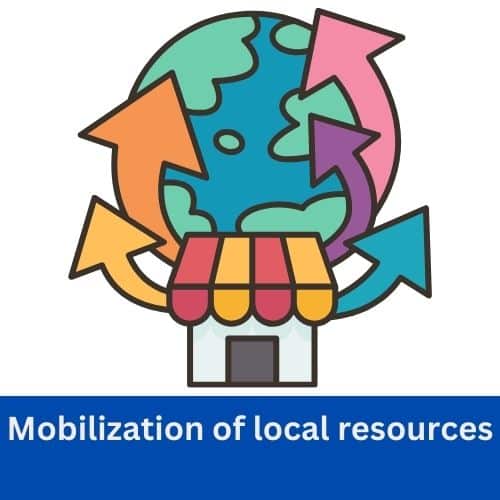
MSMEs help mobilize capital. The expansion of businesses, even in tiny towns and villages, would promote the practice of saving money and investing among the folks living in rural areas. These industries ease the growth of local entrepreneurs and self-employed professionals in small towns and villages.
Simple technology:

MSMEs can easily adopt new and simple production techniques without requiring a significant investment.
Less dependence on foreign capital: MSMEs use a relatively low proportion of imported equipment and materials. The industries in India are truly fortunate because they can produce the necessary machinery within the country itself. This means that they don’t have to rely on foreign capital, which is a great advantage.
Shorter gestation period:

In these businesses, there is a brief period between when the investment project is completed and when the consumable goods start flowing.
Promotion of self-employment:

MSMEs encourage the development of personal skills and drive, and they play a significant role in promoting self-employment, especially among educated individuals and professionals.
Existence of Having a significant amount of individuals who are self-employed and managing their micro, small, and medium enterprises (MSMEs) would ensure the steadfastness of the political system, particularly the democratic institutions within the nation.
Promotion of exports:

During the period after gaining independence, many new modern MSMEs were established, which greatly boosted the contribution of the small-scale sector to export earnings. Asian countries like Japan, Hong Kong, South Korea, Singapore, and Taiwan have shown that a robust and sustainable small industrial sector is crucial for achieving successful export-oriented growth.
Protection of the environment:

MSMEs play a crucial role in safeguarding the environment by mitigating the issue of pollution.
Help the development of large-scale enterprises:

MSMEs play a crucial role in aiding the growth of big companies by fulfilling their needs for raw materials, intermediate goods, spare parts, and more and by utilizing their output for further production.
For example, General Motors buys from more than 10,000 suppliers, most of whom are small.
Apart from the above facts, the promotion of MSMEs helps in manufacturing artistic goods in huge quantities, stabilizing democratic structure, fostering better industrial relations, promoting cooperation, eliminating labor conflicts and reducing complaints, encouraging individuals to work for themselves, alleviating overcrowding in cities, and improving the country’s currency reserves.
Problems of MSMEs (Limitations)
MSMEs face various limitations that hinder their growth and success. These challenges include limited access to capital and financial resources, which makes it difficult for them to invest in new technologies or expand their operations.
Additionally, MSMEs often struggle with limited market reach and face intense competition from larger companies. They also face challenges in terms of limited managerial and technical skills, which can affect their ability to innovate and adapt to changing market conditions.
Overall, these limitations pose significant obstacles for MSMEs in achieving their full potential and contributing to the economy.
The MSMEs face several problems. Here are a few significant challenges that MSMEs face:
- Lack of managerial experience:
- Inadequate finance:
- Lack of proper machinery and equipment:
- Lack of technical know-how:
- Run on traditional lines:
- Irregular supply of raw materials:
- The problem of marketing:
- Personnel problems:
- Lack of clear-cut policy of the Govt.:
- Bogus units:
- Underutilization of capacity:
- Other problems:
Lack of managerial experience:
As the MSME is owned by one person or group of persons, they may not have specialized knowledge in the different fields of management. When they start the project, they can’t accurately predict how much money they will need and how big the market will be for their products.
Inadequate finance:

MSMEs face a significant challenge when it comes to finance, which is one of their most crucial problems. Finance acts as the lifeblood of an organization, and without enough funds, no organization can operate effectively.
Typically, MSMEs are unable to secure complete financial support from their sources. They get finance from the unorganized finance sector at a higher rate of interest.
Even though there are specialized financial institutions set up by the government for financing the MSMEs, there are bureaucratic delays, and also the finance supplied by these institutions may be inadequate.
Further, banks still follow security-oriented policies, and the full requirements of the entrepreneurs are not met. Their insistence on securities causes great inconvenience to the entrepreneurs. The finance provided by banks to the MSME sector is only 12% of the total finance.
Lack of proper machinery and equipment:
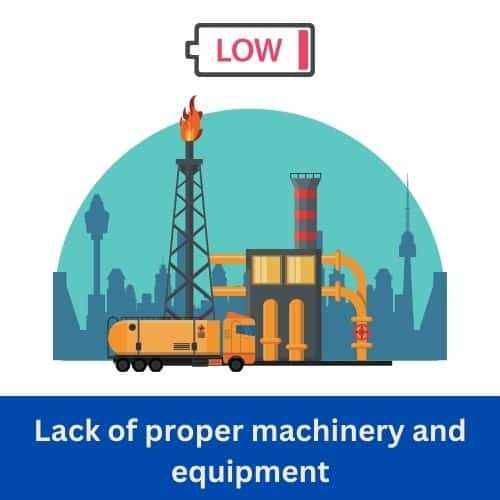
Because of the financial problems, many MSMEs use inefficient and outdated machinery and equipment. The quantity and quality of production are impacted by this. As a result, the cost of production becomes expensive.
Lack of technical know-how:
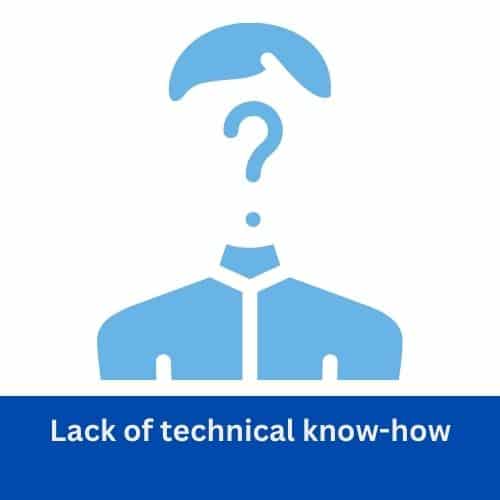
Small and medium-sized enterprises (MSMEs) lack awareness about various alternative technologies and processes that can be utilized to enhance the manufacturing of their products and reduce costs.
Run on traditional lines:

Generally, the MSMEs are run on traditional lines. Modern methods and techniques of production have not been embraced by them yet.
Old designs and patterns are used. In most of the MSMEs, there is a high degree of obsolescence. They haven’t shown enough interest in research and development. Due to these issues, they are unable to operate efficiently.
Additionally, their products fail to meet the expectations of modern consumers.
Irregular supply of raw materials:

MSMEs face various challenges when it comes to the supply of raw materials. The quantity, quality, and regularity of the supply are some of the key issues they encounter.
Since most MSMEs rely on external sources for their raw material needs, they often struggle to get a consistent supply of high-quality materials in enough quantities. Additionally, small entrepreneurs are compelled to pay inflated prices for materials due to their limited purchasing power.
The problem of marketing:

One of the main problems faced by the MSMEs is in the field of marketing. The problem of popularising brand names of the products of MSME is acute due to tough competition from large industries.
It cannot afford costly advertisements. It does not have a network of distribution system. Large buyers not paying their bills on time is causing a shortage of funds for the company.
Because of the shortage of finance, the MSMEs do not have adequate staying capacity and are often forced to sell their products at lower prices.
Personnel problems:

MSMEs face personnel problems also. It’s a real challenge for them to find skilled individuals to manage the business.
They are unable to hire well-paid professionals to handle tasks like purchasing and sales. Moreover, they are unable to offer extensive training opportunities to their employees. They also face the problem of maintaining good relations with labor unions.
Lack of clear-cut policy of the Govt.:

The lack of clear-cut policy of Govt. towards MSMEs is another problem. The government might make decisions about MSMEs based on political factors rather than economic factors.
Bogus units:

It is stated that 20% of MSMEs in the country are bogus concerns and that they exist to get their quotas of steel, aluminum, basic chemicals, and other scarce raw materials and divert them into black markets.
The government needs to seriously investigate this matter, dismantle the powerful influence of those with personal interests, and support authentic entrepreneurship in the country.
Underutilization of capacity:
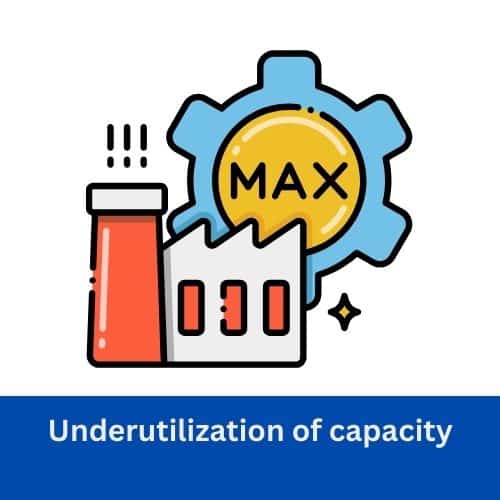
According to Arun Ghosh, based on the All India Census of SSIS, 1972, the percentage use of capacity was only 47 in mechanical engineering industries, There are 50 electrical equipment, 58 automobile ancillary industries, 55 leather products, and just 29 plastic products.
On average we can say that only 40 to 50 percent of capacity was not utilized in small-scale units. There are certain reasons for the underutilization. Some of them are shortage of raw materials, non-availability of power, inadequate working capital, limited market, etc.
Other problems:

Also to the problems enumerated above, the MSMEs face many other problems like inefficient management, non-availability of cheap power, burden of local taxes, etc. It was found that half of all new businesses died within 18 months after birth.
The failure rate is somewhat higher in the case of small businesses. It is found that in the USA, every year, 1% of small industries fail. Similar rates occur in the UK, the Netherlands, Japan, Taiwan, and Hong Kong.
Conclusion
In conclusion, the role of msme in indian economy cannot be overstated. These enterprises are the driving force behind economic growth, employment generation, and innovation. They contribute significantly to the GDP of the country and play a vital role in reducing poverty and promoting entrepreneurship.
The government and various stakeholders must continue to support and nurture the growth of MSMEs to ensure their sustained success and the overall development of the Indian economy. With the right policies and support, MSMEs have the potential to transform the economic landscape of India and create a brighter future for all.



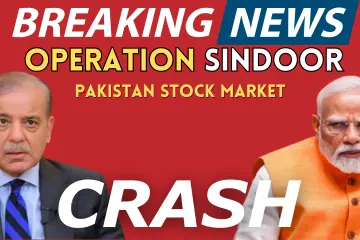




11 Reviews